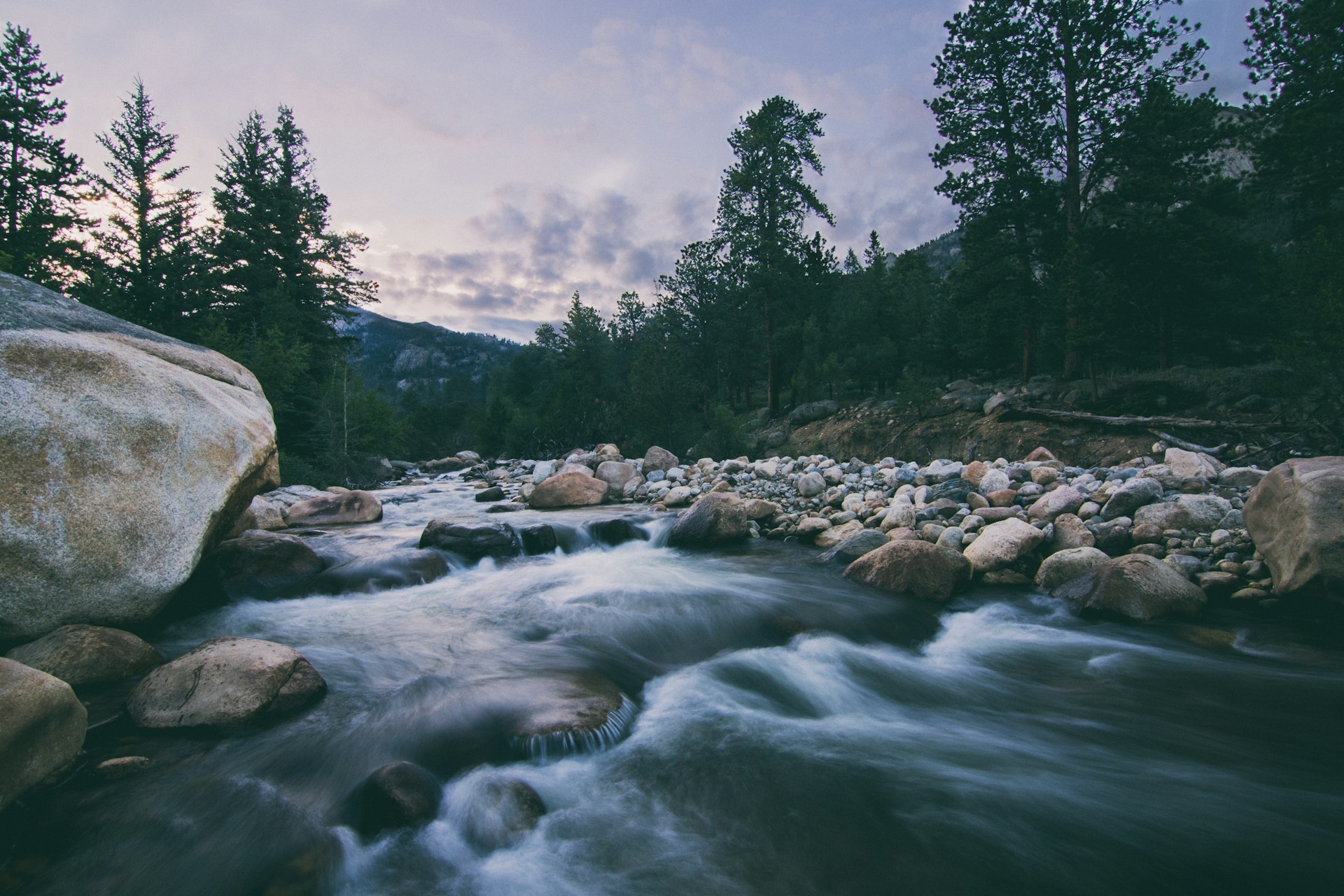“It’s me,” I said.
My twin brother took out a picture. He had kept it ever since Dad left us. The photo was black and white, small enough to fit inside his wallet. Our father leans on a tailgate wing of the Buick. He faces away from the camera, his sunglasses on the road of perfect lawns and staked-trees. The shot of the picture is far and high above—taken from upstairs, maybe by some angel or ghost dwelling in our mother’s window. Dad holds a baby in his arms. Me. Half-naked. Grinning with my fingers in my mouth.
“That’s how I know,” I said, pointing to my face. “That’s me.”
“You think so?” he said. He raised the photo to his eyes. I kept walking and slid my hands back in the pockets of my coat. A bird flew over the dark water of creek and landed in the bare woods. I was hoping it’d be cold enough for the water to freeze. We used to see who could slide the farthest on the ice when we were kids. “Mom said it was me.”
“When?” I said. “Because if it was recent, who knows what she was thinking. She might’ve thought I was Dad in that photo.”
“Why do you talk about her like that?”
“You’ve thought the same and you know it. She wasn’t herself by the end of it.” He caught up to me. In high school, I once took the car and ditched him here after a fight in the summer. We had smoked a joint on a bed of rocks. It was my last night in Ohio before I moved to Chicago for school. He had said I was selfish for leaving. “Forgetting your name,” I said, “of all people. She actually thought I was him once when I came down, remember. ‘You’re back,’ she said. ‘It’s really you.’”
“I don’t want to think of her like that,” he said.
He handed me the photo. We came upon the narrow island that parted the creek. A bed of wet stones made a path to the dry rocks in the middle of the water. Carefully, we stepped across, our shoes slipping off stones and into the cold, fast stream. When we were kids we took the dogs here with Mom and we would fish on the island. There was another picture of a small, thin fish hanging from a line between our wide smiles and squinting eyes and long bangs. I heard our father liked to fish. I could never remember who told him that.
“You’re right,” he said, “but I don’t think you should talk about her in that way. Let’s not forget she’s the one who raised us. She’s the one who was there.”
I said I was sorry. We stood on the island together. The morning was gray and nothing moved but us and the water. Our kids were just getting up for breakfast and goodbyes. My family came in for Thanksgiving and we were leaving today. It was the first one without Mom.
“I just miss her,” I said.
“Me too.”
He smiled, his lips shut, and then turned away from me. He saw the most of her decline and he called me about it: forgotten names, repeated conversations, falls in the middle of the night. “You need to be here,” he said. The few times I came back, though, I couldn’t take it. She thought I was him. “It’s really you.” She would cry and kiss me, or she would shout until I left her sight. Once, she pulled one of my daughters into her arms and waited for me to leave, and sometimes I could feel the look in her eyes whenever I thought of her, the hurt and hate still watching me.
I wondered if I was like him. Even if I loved my children and my wife, it didn’t matter, because I had already abandoned my first family in my own way. Just like him. I studied the picture of Dad again. I just wanted him to turn toward the camera and look my way one time.
“Maybe it is you,” I said.
We once found a dead bird on these rocks. A little black one upon the white and gray island. I could see the place of its death, just behind us, and I could feel it, too, as though it had fallen inside of me and left its feathers in my bones.
“She could’ve been wrong,” he said. “Who knows what she was thinking then.”
The black water eddied and swirled, and the clouds seemed so close we could throw rocks through them. We used to skip them across the creek and count the splashes. We got in a fight one day and threw them at each other. He had a cut on his cheek and it was now a scar for people to tell us apart. It made for a story, too, but we could never remember what we fought about. We just repeated what Mom said. “You’re brothers. You’re family. Never hurt your family.” We tried to laugh if off even though it never felt like a funny story.
I stared down at that man holding one of us and I felt that dead bird in my bones again. Look at me, I thought. Just once. Look at me. When Mom died, we thought he’d show up to the funeral. No call, no letter. For all we knew, he could be dead. My hand nearly crushed the photo.
“Here,” I said, “it’s yours. It’s you. It’s probably you.”
His eyes were forward and faraway, and my hand was getting cold.
“Keep it,” he said.
